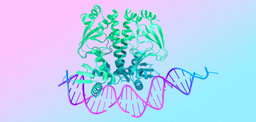
In academia, we often hear about the importance of networking, but the focus is usually on professional connections. Here, I want to talk about a different kind of network, one that is often overlooked but equally important: your network of support.
In our career as scientists, networking is certainly one of the most commonly heard buzzwords. From the moment we start a PhD, networking is presented to us as a key to a successful academic career. We’re told that building a “network” is essential for professional growth and job opportunities, and entire sessions at conferences are dedicated to networking or “speed dating” for academics. But what is networking and why does it matter so much?
First things first: let’s define networking. In academia, networking is the action of building connections with other researchers. It is not a mere exchange in contact details but it should involve a more active engagement in scientific discussion and exchange of ideas. Besides allowing one to stay informed about the latest research, effective networking should help to refine our ideas, improve papers or grants via collaborations, and possibly find job opportunities. However, despite its many benefits and noble intentions, networking doesn’t always go as intended. Like many good ideas, it can miss the mark, losing its true meaning.
For example, when networking is treated as a mere “box-ticking” exercise, it can produce shallow connections (as sometimes happens with mentoring). In such cases, connections are made more out of obligation or to gain increased visibility rather than genuine interest. Connections made out of obligation or for increased visibility rarely lead to genuine collaboration. A further danger here is captured by Goodhart’s law: “When a measure becomes a target, it ceases to be a good measure.” With committees now using networking as a measure of success for grant applications or promotions, the quality of connections often gets overshadowed by their quantity. This can lead to purposeless collaborations that only add noise to an already busy schedule. Think about some social media and the number of people in the network. Does it really speak for genuine connections?
Networking can also lead to groupthink, where isolated networks, often referred to as “cliques” by the outsiders, reinforce their own ideas and even, unintentionally or not, promote exclusion. This problem can be especially harmful if some network members can influence publishing or funding, acting as editors, referees, or panel members. Groupthink can be also detrimental to the development of new scientific ideas and creating biases.
But there’s an aspect of networking that isn’t often openly discussed yet may be the most impactful of all: building a network of personal support. In academia, where the ladder of responsibility grows steeper at every stage, it’s easy to feel isolated. As a student, you may have numerous peers around, but as you move to postdoctoral work and ultimately a principal investigator (PI) position, the decisional landscape can change dramatically. The PI role, in particular, can feel like a solitary experience, as you take the responsibility for projects, personnel, and finances (this aspect has been tackled in previous articles). The pressure is real as are the constant setbacks, tough decisions, crises, and many moments of (self)doubt. In fact, many of the most challenging or pivotal decisions I’ve faced in my professional life were not purely scientific but rather involved professional or moral quandaries. A solid support network can make these challenges feel less overwhelming.
So, how do we build a proper network of support? First, cultivate true human relationships; do not treat people as mere lines in a CV for strategic gains. These relationships should be based on mutual respect and genuine connection. Start by reaching out to people with shared interests but look deeper and find those with whom your core values are shared. Go beyond your immediate research area. Being surrounded by people whose human side is attuned to yours will be far more crucial than their scientific knowledge in several circumstances. Based on this premise, it shouldn’t come as a surprise if the most enriching support could come from those outside one’s academic area. It is also natural that in order to establish this depth of human rapport, one needs to expose one’s true self gradually and establish reciprocal trust. Hence, a good support network doesn’t form overnight. It takes time, commitment, effort, and often even making mistakes; but the investment of time and effort will pay off over time. Finally, a key feature of the support network is that it resembles a true friendship. It should encourage growth and resilience without being too imposing or fostering dependence.
Remember, though, that building a support network is a two-way street. Be willing to offer your time and expertise to others. You probably do not realise how important a word of comfort or reassurance could be to someone else when they are concerned or need help. Although not obvious, this network of support doesn’t need to contain only people at one’s career stage. I keep on being inspired and supported by early-career researchers, as much from more senior and experienced colleagues. And this applies to every career stage I have been, since my PhD.
Having such a network provides several benefits. Not only can it help buffer the pain of a grant rejection or a tough review, but it can also combat feelings of imposter syndrome and foster a healthier sense of balance. These colleagues can help one navigate career decisions and demonstrate that academic success doesn’t have to mean sacrificing well-being.
Another important point to remember is that due to the inherent mobility of our job, this network of support could quickly change its dynamics when you or the network partner move. While this sounds extremely frustrating, one should not worry. Thanks to the more widespread availability of virtual modes of communication, your network of support has never been closer. It is true that to maintain a true and positive human relationship, being close to each other helps, but a video call can still have an important effect on you in the midst of problems.
In conclusion, when you hear the word “Networking” you shouldn’t just think about how to boost you career advancement. Consider it also as a web of support, a source of strength, resilience, and purpose made of true human relationships, not initiatives to improve one’s CV. The latter will be inevitably short lived and possibly even problematic. Academic life may have its lonely moments, but we don’t have to face them alone. After all, science has its human dimension – let’s embrace it.
I finish this piece by saying that I am deeply grateful to all who have supported me over the years. I may not be able to name you here, but I’m certain you know who you are.
Top image of post: by MJH Shikder from Pixabay





Join the FEBS Network today
Joining the FEBS Network’s molecular life sciences community enables you to access special content on the site, present your profile, 'follow' contributors, 'comment' on and 'like' content, post your own content, and set up a tailored email digest for updates.